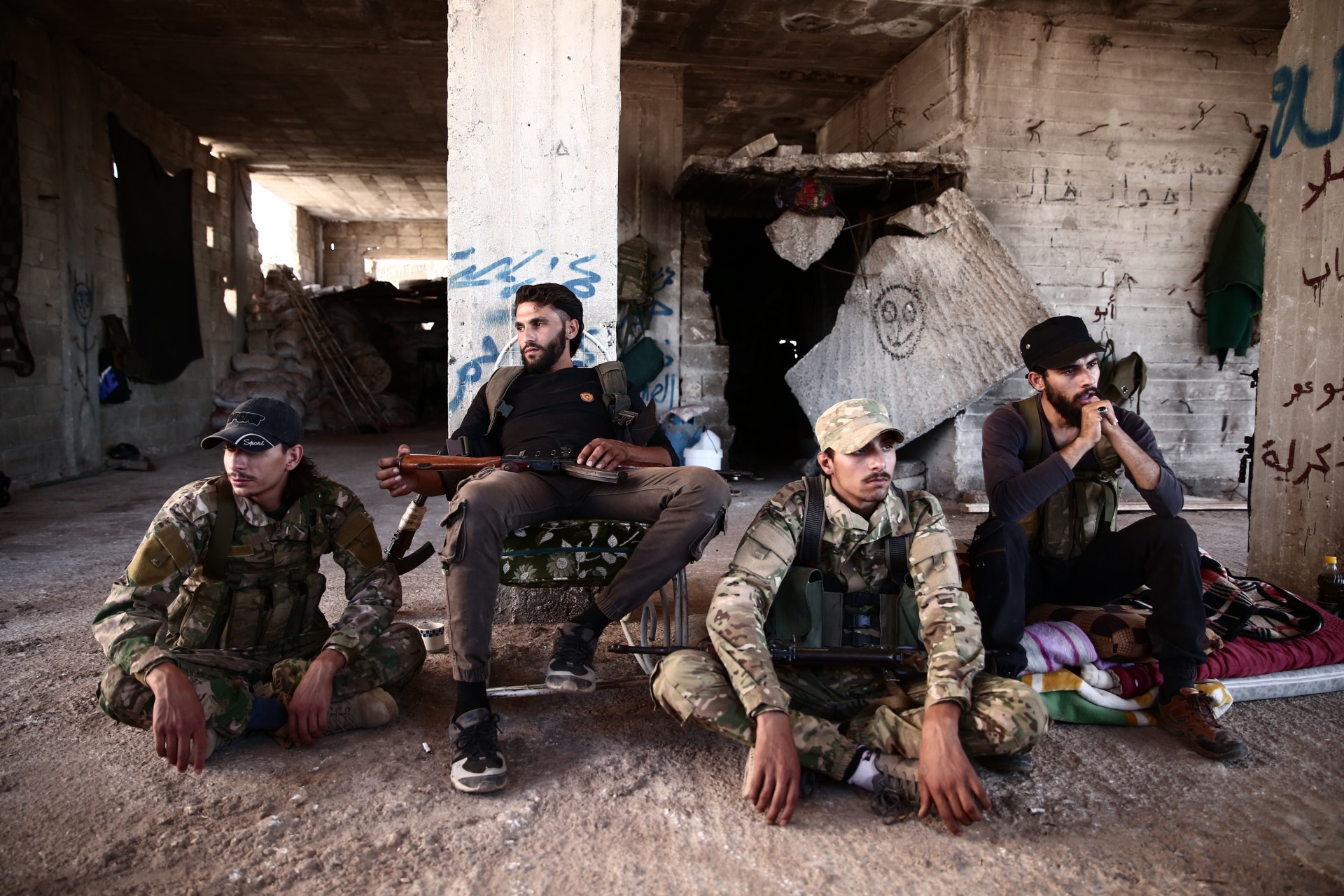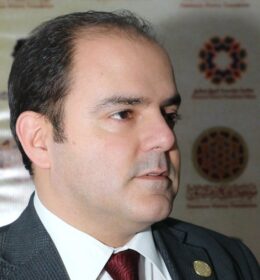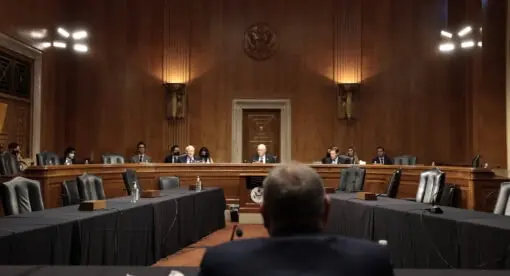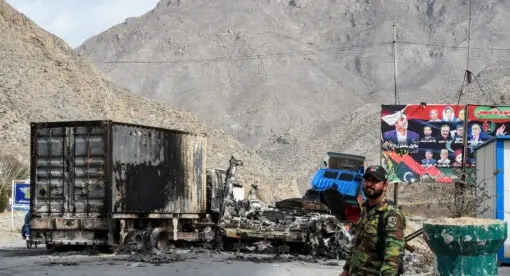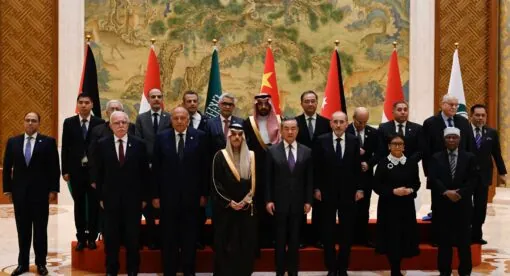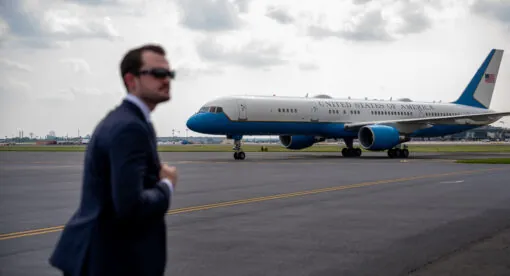Numerous factors have put Syria’s constitutional talks on hold. Foremost is the COVID-19 pandemic, which makes it impossible to bring some 150 negotiators into one room anymore. But even without this global crisis, deep divisions between the two principal stakeholders, Turkey and Russia, will continue to obstruct the political process. While these two geopolitical heavyweights are unlikely to meet all their goals in Syria, one of the main losers will be the Muslim Brotherhood (MB), Syria’s oldest and most influential opposition group and one through which Turkey hopes to shape the future of Syria.
Russian & Turkish Imperatives
The political process does not seem likely to meet Russian political aims. Despite efforts to shift the focal point of talks away from U.S. influence by moving negotiations from Geneva to the Black Sea port of Sochi or to Kazakhstan’s capital, where Russia has far greater leverage in shaping a future Syrian charter, no new or amended constitution has emerged. A constitution for Syria is central to achieving U.N. Security Council Resolution 2254 of December 2015, without which there will be no reconstruction in Syria. No reconstruction money drowns all efforts by the Kremlin to re-legitimize the Syrian government internationally and rebuild it economically.
The Russians have shown no willingness, or ability, to rebuild the war-torn country on their own, trying to lure Arab and European states into the process. Rebuilding Syria could cost as much as $500 billion, according to some estimates. Thus, the only way for Moscow to move forward on reconstruction is to have the West and the broader international community shoulder this financial responsibility. And for that to happen, there must be a political settlement with some opposition forces, probably as vetted by Moscow and Damascus. Russia’s aim is to make sure that any opposition role in a new constitutional order be as limited as possible. This will necessitate negotiation with Turkey and, by extension, the Brotherhood.
Turkey’s aims in Syria are also frustrated. Though unhappy with how the drafting of a new Syrian national charter was proceeding, Turkish President Recep Tayyip Erdogan had reluctantly agreed to the process. The Turks feel that the United Nations gave a great deal of agency to the Syrian government at the expense of their prime ally and key proxy among the opposition, the Syrian branch of the MB, which is absent from the talks.
The Brotherhood in Syrian Politics
The MB has struggled to establish a key role in this political process. Of course, neither Damascus nor Moscow is willing to accept the MB as a player in the post-conflict political process. Likewise, the secular Syrian opposition and the United States would want to see the Brotherhood and the broader Islamist rebel camp play as limited a role as possible in Syria’s future. In fact, there have been calls from domestic quarters as well as Arab state allies and the Trump Administration to designate the Brotherhood as a foreign terrorist organization.
Moscow’s opposition to the Brotherhood’s involvement is based on a Syrian law dating back to the early 1980s, which considers membership in the organization a capital offense punishable by death. In fact, the last time the MB was included in any Syrian constitutional talks was in 1962, during the short-lived civilian government of Nazem al-Qudsi, which directly preceded the Baath era.
More recently, the organization’s only representative, Ahmad Sayyed Yusuf, was withdrawn from the opposition delegation to the constitutional talks days before they started last October, at the request of the Russians and the Syrian government delegation. This was music to the ears of Saudi Arabia, which is at odds with Turkey over its continued support for the Brotherhood and blames the MB for sedition in the Gulf.
The Brotherhood responded by issuing a statement trashing the constitutional process, describing it as sugar coating aimed at legitimizing Russia’s military endgame to the Syrian crisis. Brotherhood members recently expressed their great dissatisfaction with a Russian-authored charter that has been making the rounds, which suggests a series of amendments not to their liking. One of them is changing the name of the country from “Syrian Arab Republic” to “Syrian Republic,” in order to please Circassians, Armenians, and Kurds – all non-Arab Syrians who have historically been opposed to the Brotherhood.
Additionally, the constitutional draft omits Article 3 of the current Syrian Constitution, which names Islam as the religion of the president of the republic. This omission would entitle Syrian Christians to the presidency. The Russians want the article scrapped in order to promote themselves as protecting and empowering Levantine Christians. The Brotherhood wants it included, arguing that a Christian cannot rule a Muslim-majority country. This dates back to 1943, when the MB opposed the election of Fares al-Khoury, a Protestant Christian, as speaker of parliament. At the time, a leading ideologue named Ali al-Tantawi wrote: “Islam prohibits a non-Muslim from being elected to a chamber that pens laws for Muslims.” Making a non-Muslim president equals heresy, in the Brotherhood’s book.
The Brotherhood’s Waning Relevance
Such hardline views were not always so universal for the Brotherhood. At one point, many MB leaders were far more open and pragmatic. Syria’s first constitution, a monarchial one, had been drafted during the short-lived Syrian kingdom of 1920, eight years before the Muslim Brotherhood was founded in Egypt. Syria’s parliament speaker at the time was Sheikh Rashid Rida, a renowned forerunner of Islamism from Homs whom many consider a source of inspiration for the Syrian Brotherhood. He did not oppose Article 13 of that constitution, which guaranteed the freedom of religious practice for all Syrians. Rida said that staying away from all religions deprives world powers from any pretext needed to meddle in Syrian domestic affairs, ostensibly to protect minorities from persecution.
Thirty years later, the Muslim Brotherhood was voted into Syria’s constitutional assembly and tried to push for what Rida had omitted in 1920. That was during the penning of the 1950 Syrian Constitution, which many in the opposition are now trying to revisit. This constitution diluted presidential powers and empowered the premiership, transforming the head of state into a ceremonial figure. According to contemporaries on the constitutional committee like the lawyers Munir al-Ajlani and Abdul Wahab Homad, some from within the Brotherhood insisted that their only constitution was the Quran. Others said that they could only reach their ultimate objective — an Islamic state in Syria — if they pushed for it through governmental bodies like municipalities, parliament, and the executive branch. They demanded that Islam be recognized as the official religion of the state in order to combat the increased secularism in Syrian society after 26 years of French colonial rule. An eight-man committee was created to study their request. Three committee members were also MB members: Sheikh Maarouf al-Dawalibi of Aleppo, Sheikh Mohammad Mubarak of Damascus, and Sheikh Mustapha al-Sibaii of Homs, the founder of the Syrian Brotherhood. They eventually settled for an Article 3 setting the religion of the president rather than the entire state.
In 1973, then-President Hafez al-Assad released a secular constitutional draft, which also omitted Article 3. Muslim clerics and parliament members were once again furious, demanding its reinstatement, a demand echoed by the Muslim Brotherhood. People were so upset with the scrapping of Article 3 that they did not notice Article 8, which said that the Baath Party was the ruler of state and society. Eventually, Article 3 was reinserted. Three years after the constitutional interlude of 1973, the Brotherhood took up arms against Assad, having tried and failed to seize power from his Baath predecessors back in 1964. On both occasions, they were crushed and obliterated, with their leaders ending up either behind bars or in exile.
For decades, the Brotherhood has been waiting for a chance to re-enter Syrian politics, from which they had been excluded since 1963. In 2008, the group even joined forces with its former enemy, former Syrian Vice President Abdul Halim Khaddam, in setting up the National Salvation Front party, but that effort also ended in vain. The MB then joined the Syrian National Council that was created in Istanbul in 2012, hoping that it would spearhead the transitional period, but that transition never happened. Since Erdogan came to power, the MB has been closely aligned with Turkey. At least one of the Turkish-backed military groups on the Syrian battlefield, the Sham Legion, is affiliated with the MB (although its leaders tried to downplay that connection, hoping to secure Gulf funds, which did not work). The civil war has brought to the fore rival Islamist forces like the various rebel groups, in particular Hayat Tahrir al-Sham.
Therefore, even if it were allowed into the constitutional process the MB’s influence over the fragmented and largely Islamist rebel landscape is weak. This will likely work to the Russians’ advantage, since they want to make sure the opposition’s role in the new constitution remains toothless and ceremonial — at best.
Sami Moubayed is a Syrian analyst and historian, and author of “Under the Black Flag: At the Frontiers of the New Jihad” (IB Tauris, 2015).
The views expressed in this article are those of the author and not an official policy or position of the Newlines Institute.

